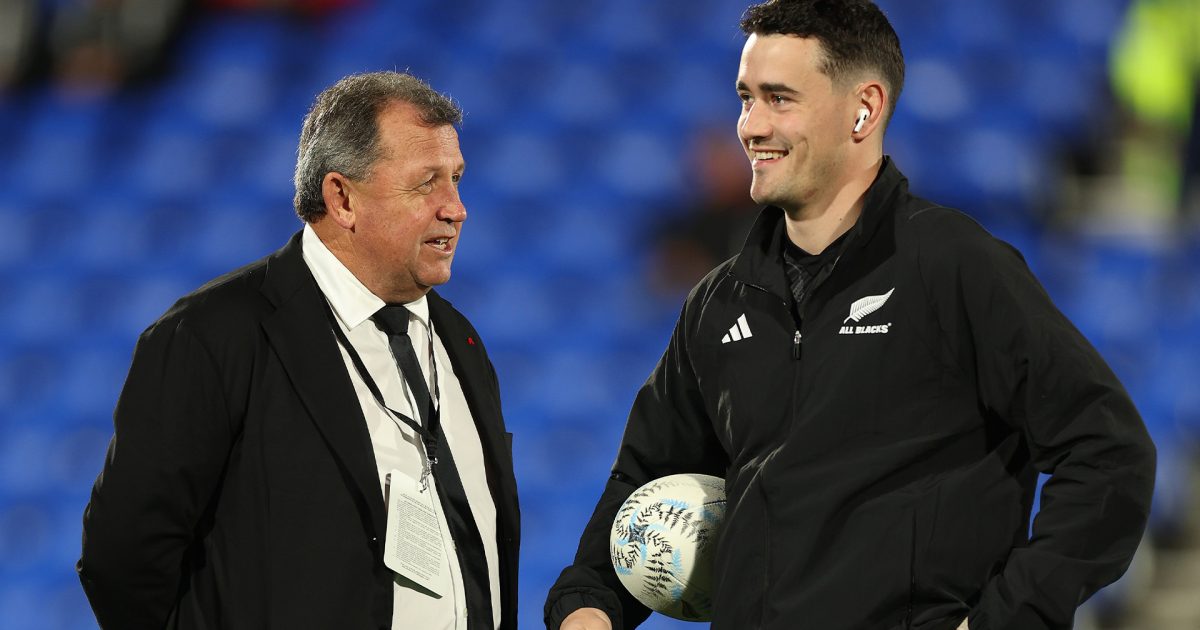Stephen Donald outlines how ambitious All Blacks attack had Springboks 'in disarray'

The All Blacks‘ kicking game put South Africa under all sorts of pressure in their round two Rugby Championship win in Auckland.
Whether it was Aaron Smith, Richie Mo’unga, Beauden Barrett or Jordie Barrett, each and every time boot was put to ball, the All Blacks profited.
That’s a stark turnaround from previous encounters between the two when South Africa’s kicking game pressured the All Blacks into mistakes and territorial submission.
The statistics show that not only did the All Blacks make double the amount of kicks that the Springboks did, their retention rate was an other-worldly 55%, helping the team initiate scoring opportunities and claim 56% possession for the game.
The Springboks were also their own worst enemy, dropping two kicks in the opening 26 minutes and struggling to retain the ball when the high kicks were contested. The duo of Will Jordan and Mark Telea on the other hand each found success under the high ball.
“The Springboks’ backfield was in disarray as far as taking anything,” Former All Black Stephen Donald said on SENZ The Run Home. “Obviously, Kolbe’s a small man so it’s always going to be a 50/50 crack there if the kicks are good.
“They also isolated Willemse, who was back there a lot, who was the Springbok 10. Well he couldn’t catch a cold and every time they went up on him, Telea wasn’t always catching it but what stood out about Telea was every time Telea chased there was a contest, there was usually scraps and invariably we got the scraps.”
Donald went on to explain the effect of the kicks on the ensuing plays, how they disrupted the Springboks’ defensive structures and contributed to the rapid pace that the All Blacks managed to play with.
“From there, we were just able to keep changing the point of attack. We were able to keep the ball moving and sometimes it looked like touch footy, boys would get to the edge and go ‘I don’t like this, we’ll just go back infield a bit.’
“But it never allowed the Springboks to set, it never allowed them to get that physical dominance which you might have actually seen a bit in the second half where the Springboks were able to set their line and able to fight rucks which brought them back into the game.”
Despite the All Blacks’ high number of kicks compared to the Springboks, they were in no hurry to exit when under pressure in their 22, instead trusting their execution and chancing their arm at attacking opportunities.
The All Blacks were happy to set 12 rucks in their own 22 and varied their exit strategy between touch-finders, cross-field kicks and contestables. The Springboks on the other hand offered a more traditional exit strategy with clearance kicks looking to find touch each time, making for just two rucks in their own 22.
The different philosophies are also evident in the 22-50 metre zones, where the All Blacks played their way through 26 breakdowns compared to South Africa’s seven.
































